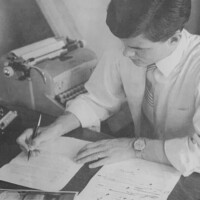
50 Years After CC/73, Louisiana Constitution Still Shines Brightly, Few Delegates Survive
By Woody Jenkins, Editor, Central City News — CENTRAL — A little more than 50 years ago, I had the unique opportunity as a young man of 26 to serve as a delegate to CC/73, a state constitutional convention, called by the legislature to rewrite the Louisiana Constitution of 1921, the longest constitution in the world. The work of the convention lasted for 18 months, beginning in late 1972 and continuing through early 1974.
It was one of the most demanding things I have ever been part of. A total of 132 men and women came from all parts of Louisiana with one solitary goal — to draft a constitution that could win the support of the voters and then serve our people for generations to come.
The delegates elected officers and divided into committees. Each committee was responsible for doing the research and coming up with a proposed draft of one Article of the constitution. I requested and was assigned to the Committee on Bill of Rights and Elections.
We held months of hearings and took extensive testimony from “experts” and the general public. I read the Bill of Rights of every state and more than 100 foreign countries.
The Bill of Rights Committee had 10 members — five liberals, four conservatives, and me. If I sided with the liberals, the vote was 6-4. If I sided with the conservatives, it was 5-5. Most of the time, I sided with the conservatives, and the committee was hopelessly deadlocked. One side included Kendall Vick, the general counsel of the ACLU in Louisiana, Rep. Alphonse Jackson, a staunch liberal, Tony Guarisco, a trial lawyer and strong liberal who later served in the state senate, and Chris Roy, law partner of Camille Gravel, an outspoken liberal and executive counsel to Gov. Edwards. The other side included Rep. Ford Stinson, the conservative champion in the state house, Dr. Gerald Weiss, and me, a newly-elected representative from the Istrouma area of North Baton Rouge.
The pressure was on us. If we couldn’t agree, there would be no Bill of Rights and without a Bill of Rights, no new constitution. The constitutional convention would end in deadlock and failure.
After weeks of committee debate and continued stalemate, one of the liberal members of the committee looked at me and said, “All right, you know what all of us believe by now. Why don’t you take it and see if you can come up with a draft we can all live with?” The other members agreed and gave me the job. I worked all night for three nights, pounding away on the typewriter my Key Club adviser, Mr. Mike Chambers, had bought for me from State Surplus for $10.
Things the delegates had said rang in my mind. Each member of the committee had strong beliefs but we each wanted the convention to be a success. The one thing every member of the committee believed in was individual rights. They believed that the state existed to protect the rights of the individual citizen, not the other way around.
As I typed, the words flowed. We would make each right enumerated in our constitution an “individual” right. There would be no “group” rights. We would protect both economic liberty and social liberty. All rights would be enforceable in a court of law. They would not just be meaningless words on a page.
When I returned to the committee, they read it, tore it up, put it back together, and then passed it on to the floor of the full convention. There it was debated for more than a week. The battles on the convention floor were bloody and stressful. Sometimes we had to vote over and over on the same thing for days in a row. But ultimately our new Declaration of Rights was adopted in a form very much like the original draft. It was a breakthrough for the convention and the beginning of many other principled compromises that led to the proposed constitution being approved with only one dissenting vote. The delegates took the proposal to the voters. Our Declaration of Rights was praised as an example of how people of very diverse views could work together and accomplish something truly meaningful. The voters approved the proposed constitution, and it is today the Louisiana Constitution of 1974. Our Declaration of Rights and the convention debates have been cited by the Louisiana Supreme Court hundreds of times. It has stood the test of time. Well, for 50 years at least.
No other state has been able to write a new constitution since Louisiana’s was adopted.


 March 16, 2023
March 16, 2023 







No comments yet... Be the first to leave a reply!